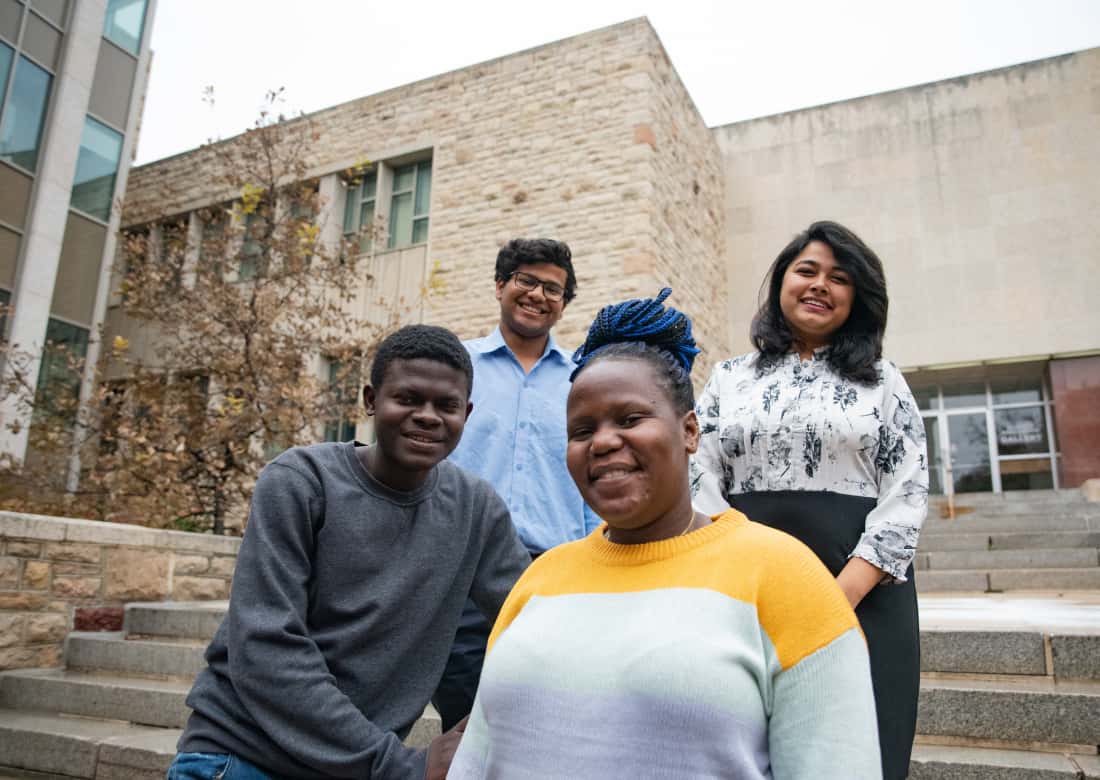
The International Students’ Association reintroduced itself this year with a vision of tackling problems with tuition, racism and lack of inclusion at the University of Saskatchewan.
In one of the first ISA meetings of the year, six international students came together on Oct. 11 to discuss the issues they face both at the undergraduate and graduate level, and how to tackle them as an association. The ISA’s decision to regroup after dissolving in 2018 was to listen to students’ voices and bring their concerns to the forefront.
José Berkenbrock, a graduate student in electrical engineering and a member of the Brazilian Students’ Association, says that the ISA exists to fight for its international students because it is “something that our university office will never do” as they “have their agenda.”
When it last appeared back in 2017, the ISA strived to represent and advocate for U of S international students. They disbanded after a year of inactivity, which has become a trend in the history of the ISA, due to lack of interest. Reportedly, this was in part because of miscommunication about the purpose of the association.
At the Oct. 11 meeting, the first topic discussed was the purpose of the group. Berkenbrock says that although there is the International Student and Study Abroad Centre, the international student population needs a representative body not associated with the university for advice on things like tuition and scholarships to assure their financial security.
“We don’t have any safety when we are here, so it’s really hard for the students to go for their studies,” Berkenbrock said.
Finances is just the tip of the iceberg for the issues international students face. ISA included seven other problems in the list they made during the meeting. These other concerns are: racism; lack of inclusion; information strategy and information availability, which refers to students’ knowledge of how their tuition is allocated; accessibility of services, referring to the services offered by the university specifically for international students; the university bubble and sustainable progress.
ISA President Akinwande Akingbehin says that because of tuition increases and the number of scholarships open to international students remaining mostly unchanged, students are finding other ways to support themselves.
“You have to think of jobs to support yourself, but then … [it] adds stress on your academics, which sort of puts you in a vulnerable position to keep your finances going,” Akingbehin said.
Tuition increases hit international students the hardest, seeing as they pay almost three times what Canadian students pay. According to Akingbehin, students are confused as to how the tuition differential is allocated. Reportedly, some believe it goes to ISSAC to fund the extra services they offer.
“They have some events like Global Village,” Akingbehin said. “For some people, these services are not essential.”
According to Berkenbrock, there is a lack of information about why tuition is so high for international students. After his first two years in Canada, Berkenbrock began to question why the number of scholarships open to international students is low and why tuition is expensive, but he says his questions have been left unanswered.
For Akingbehin, these issues are why members of ISA are taking responsibility for international students’ issues because “if the university doesn’t do anything, what are [international students] going to do?”
“We have to put pressure on [the university],” Akingbehin said. “At some point, we have to take ownership of [our issues].”
—
J.C. Balicanta Narag/ Copy Editor
Photo: Victoria Becker/ Photo Editor